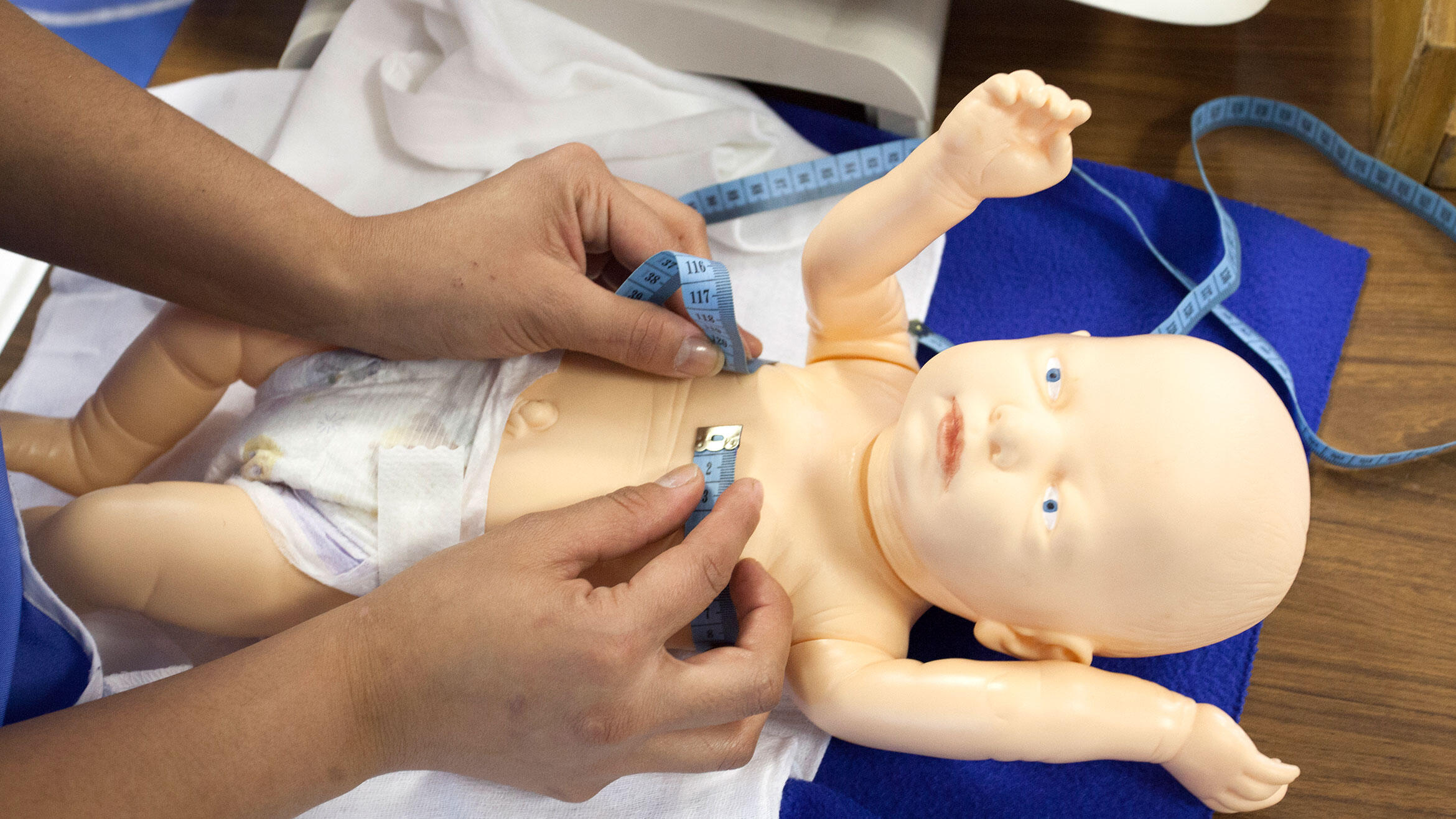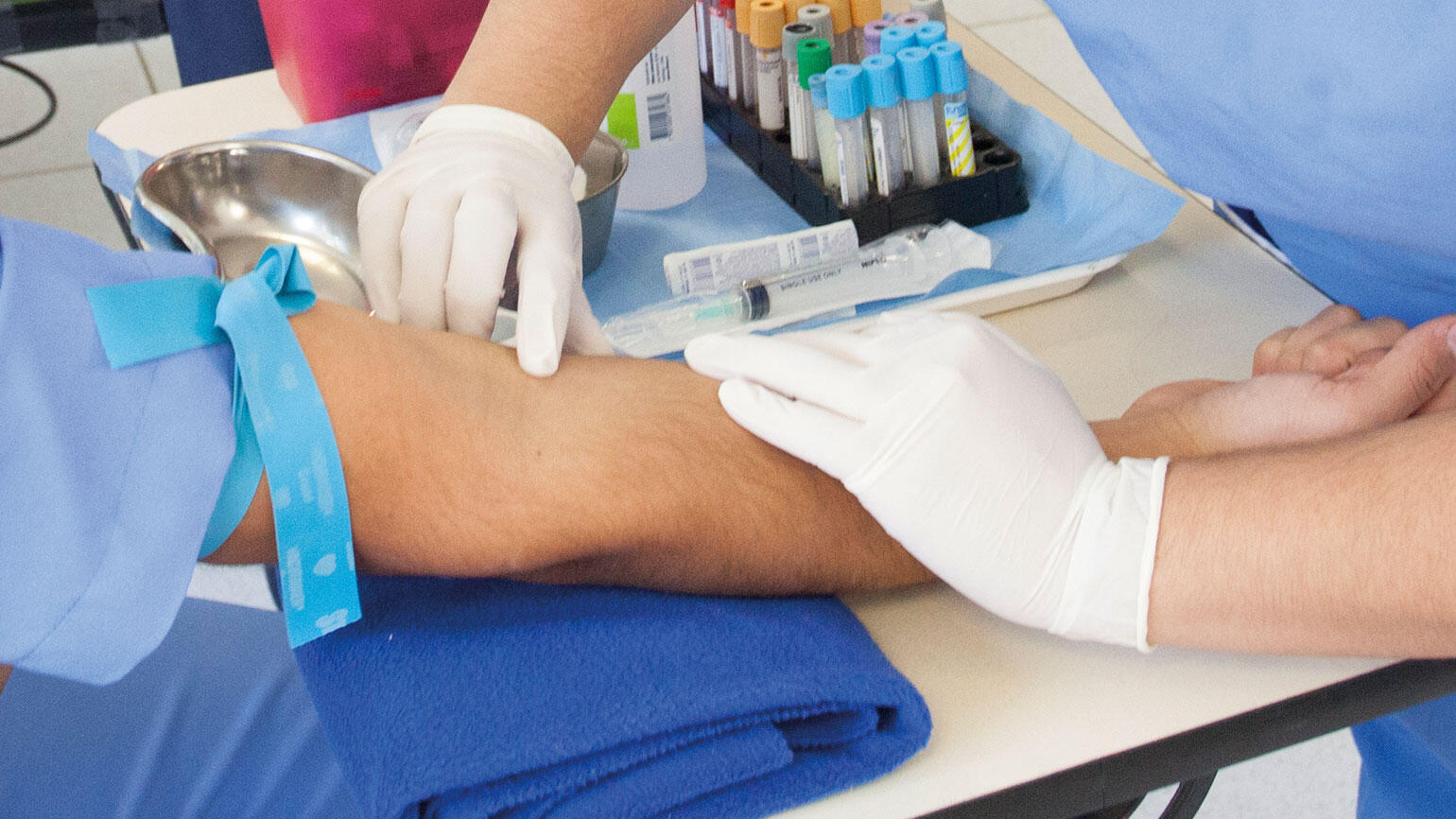TunisCare – Vocational and advanced training for Tunisian nursing staff
Recognition of the professional qualification in Germany

Under the project title of 'TunisCare', German and Tunisian project partners currently pursue the objective of developing vocational and advanced training modules for the vocational training qualification of nursing staff and ultimately sustainably implementing this training programme within the Tunisian vocational education and training system. The recognition of equivalence of the Tunisian professional qualification in Germany aims at enabling graduates of the programme to find employment in the field of nursing care also in this country.
Three partners in Germany have formed a syndicate to implement TunisCare; their work is supported by the German Federal Ministry of Education and Research (BMBF) and its key development area of 'Berufsbildungsexport durch deutsche Anbieter' (Vocational education and training export by German providers). One of the three partners is the Leipziger Gesellschaft für Bildung und Arbeit mbH. This company has been organising integration language courses and various qualification programmes for immigrants, including doctors of medicine from third countries, for more than 20 years. Two years ago, the education provider attended the iMOVE Africa Day.
The second partner is the GAB München – Gesellschaft für Ausbildungsforschung und Berufsentwicklung e. V. This is a research, advisory and advanced training institute focusing on occupational education, competence development, quality management and organisation development in the field of geriatric and nursing care, among others. The Otto-von-Guericke University Magdeburg is the third partner. It focuses on issues pertaining to occupational and business education and vocational training research, including other topics, with a focus on fundamental principles and application.
The project partners have consulted the German Chamber of Commerce Abroad in Tunis (AHK) and the Tunisian health ministry as well as state and private vocational training institutions in Tunisia regarding basic information about vocational education and training structures in Tunisia. The comparison of the German and Tunisian curricula for the occupation of nurse was followed by the development of five new vocational training modules comprising 500 teaching units. Special certificates of apprenticeship in German and French were created to support the Tunisian teaching staff in the imparting of knowledge about the German health system and quality management. Likewise, a standardised learning passport was developed in German and French in which the programme attendants have to document the content of their training courses to provide evidence for the assessment of equivalence.
In May 2015, the Leipziger Gesellschaft für Bildung und Arbeit as one of the three German partners concluded a cooperation agreement with the private Université centrale privée de Tunis (UC), which provides training for young people from the entire north-west African region. The university has agreed to provide training on the basis of the newly developed curriculum for 20 programme attendants during the pilot phase and at least 100 attendants in the subsequent years. The target is 500 course attendants per year.
The German contract partner will provide teaching materials, the curriculum, certificates of apprenticeship, the learning pass as well as guidelines, check lists and forms for the quality management system. It moreover will assume responsibility for the training of the teaching staff regarding content and methodology in eight teaching units each. The service package also comprises the provision of examination questions for the 90-minute written intermediate examination and the marking of examination papers, the issuing of certificates after successful completion of the intermediate examination as well as supervision of the quality management process by way of on-site evaluations that are to take place at least once a year. The Tunisian partner bears the costs for the provision of products and measures and will charge course fees to be paid by course attendants to cover these costs.
Following the training provision for as yet eight teachers, the first course in the context of this vocational education and training project started in September 2015. In parallel to making provisions for the pilot course, arrangements were made for the potential placement of course graduates in jobs in Germany. In addition, the German and Tunisian partners are discussing options regarding the transfer of this form of qualification to other occupational groups.
Information
This sucess story was first published in the iMOVE publication Developing Skills for Employability with German Partners • 8 Success Stories from the Health and Geriatric Care Sector. The brochure was published in 2015.
Update July 2020: The TunisCare project started in 2013 and ended in 2016.
